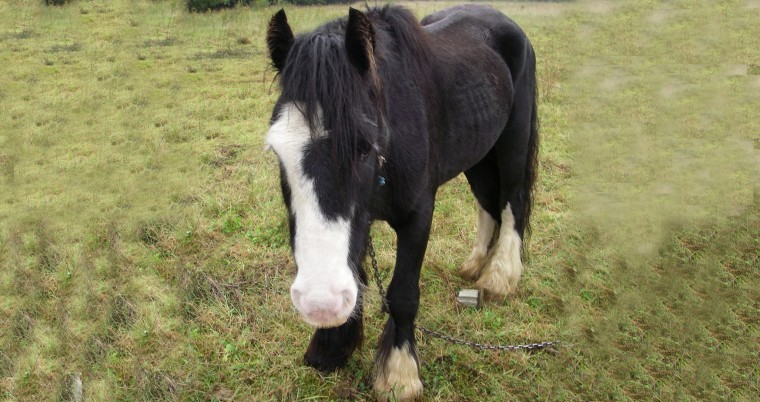Farmers face intimidation and damage to property as they try to tackle the growing scourge of illegal fly grazing of horses on their land.
Animal welfare charities and farm unions have identified the South East as a hot spot for fly grazing where rogue horse owners abandon animals on land they do not own. The Thames corridor, Hampshire, Surrey, Sussex, Kent and Essex are all increasingly affected.
Horse welfare charities say the number of horses abandoned across the country is soaring, as owners exploit loopholes in current rules and the number of horses coming into rescue centres is at an all time high.
Farming organisations say their members report a real fear of reprisals, including arson and threats to children if they try to have dumped horses removed from their land.
Minnette Blatters NFU deputy president told a House of Commons select committee that she had suffered intimidation as a result of fly grazing of up to 20 horses on her Wiltshire farm near a registered travellers’ site.
“There is a real difficulty in tackling this head on and saying remove the ponies, remove the horses from this field. Often the fences will have been cut and the gates will have been smashed to get them in there. Often the risk of reprisals for that is really quite threatening.
“I know that many members have said they have suffered reprisal attacks and barns have been burnt down. They might be rare but they have certainly happened.”
She said diplomacy and establishing a better relationship with the horse owners had helped to resolve the issue on her farm. “We still have one that roams various places, but that said it is better than having 20 and we feel safe.”
Damian Hinds, the Conservative MP for East Hampshire, told a House of Commons debate there had been horrible instances of horses being fly grazed and maltreated in his consituency. One case involved 46 horses left in poor conditions in a field in Alton. They were removed with the help of a horse sanctuary but another 18 horses arrived in the same field straight after.
“Grazing where it is not authorised is theft – it is theft of a farmer’s livelihood,” he said.
This may not be a view shared by everyone according to Joseph Jones, spokesman for the Gypsy Council and International Romani Union. He told the MPs that where people had opposing views there was bound to be confrontation, whether they were gypsies, travellers or anyone else.
“There are members of British society who regard the ownership of land as something that is undesirable and they believe that they have a right to use land that does not belong to them.”
He added that no one should condone this view but suggested including provision of transit sites for people to keep their horses could help to reduce fly grazing.
Animal welfare groups say the horse meat scandal – which has driven down horse values – the economic downturn and over breeding have all come together to create a ‘perfect fly grazing storm’.
They have joined farming organisations in supporting a private member’s bill being taken through the House of Commons to tighten horse control laws in England. The bill, backed by government, would make it easier for landowners to remove horses from their land following similar new legislation in Wales.




